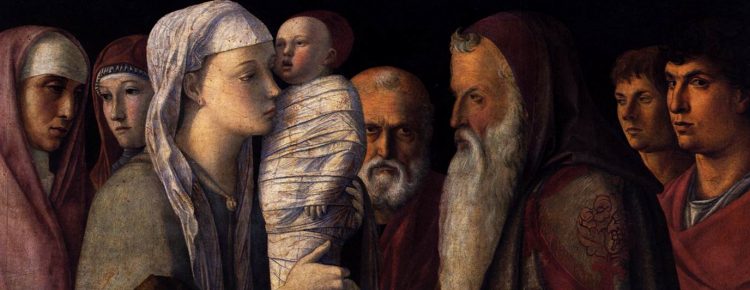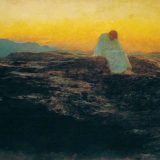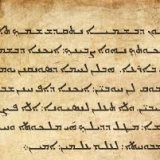There has always been a tendency in religions – including our own – to divide things up between good and evil, clean and unclean, acceptable and unacceptable. Very often this is to do with the body – the flesh and the soul – that which is physical and that which is spiritual. Deeply embedded within us the idea that our bodies are somehow dirty but that our souls are clean and holy. This works in lots of different ways: reflected in our gospel reading today is the ancient idea that women are unclean – not something men had to worry about particularly unless they somehow caught uncleanness from someone else. We see this dividing mindset at work in our world today: we’re OK but immigrants are not, I’m OK but gays are not, Christians are OK but Muslims are not. Sometimes it works both ways: Muslims are OK but Christians are not. Perhaps we might take this idea to it’s most basic and say ‘I’m OK but you’re not’. Or the other way around: ‘You’re OK but I’m not. The latter is very prevalent in today’s world – if you have mental illness or (for many women) if you’re not built like a supermodel this definitely applies -you’re just not OK.
This division between good and bad, acceptable and unacceptable is technically called dualism – the dividing up of stuff. So we have faith and politics, black and white, gay and straight, men and women, native and immigrant. I could go on…
Into this divided world, God throws a huge disruption (which is also a tiny disruption) in the form of a baby who was both divine and human. This was completely unthinkable, shattering the biggest division of all – that between God and humankind. If you think carefully you can see that the arrival of Jesus also dissolved the division between flesh and spirit – here was God (spirit) in human flesh. Like dominos, I think the dualities are supposed to keep tumbling down – but we forgot to see the pattern and put up new divisions. Behind the seemingly endless debates about women priests and bishops lay the idea that Jesus was a man so men could be priests but women couldn’t – as fast as God was demolishing justifications for dividing between good and bad, we were building new ones. The latest, so far as the church is concerned, is that hetrosexuals are OK but homosexuals aren’t. It seems as if we always need someone to disapprove of, someone to be ‘out’ while we are ‘in’. There’s another one on the horizon as we will soon be arguing about Methodists – are their Ministers proper priests or just cheap imitations? We just don’t seem to get it the message – you don’t need to trample on other people: you’re OK and so are they.
What God was showing us, in the incarnation of Jesus, is that we have no need to divide, no need to vilify ‘the other’, ‘those who are different’. We don’t need to be make ourselves feel better about ourselves by finding someone who’s less OK than us. We are all God’s children – all the objects of his love. We’re all OK
I think the only line we need to draw is between behaviour that is creative and behaviour that destroys and damages others. And even then it’s the behaviour that needs to be halted, not the person whose behaviour it is – God loves all his children, even the ones we love to hate. We have to remember that, on a personal level, as well as nationally and internationally, we are all capable or destructive behaviour. I think this is one of the reasons we need to find people to vilify – it’s a distraction and saves us looking too hard at ourselves and finding what we don’t want to see.
The feast of Candlemas presents us with a lovely picture of the unity that spirings from God, the essential unity of God’s children. For here we have very young and very old, men and women. On the surface there were only Jews there, but Simeon includes us – the Gentiles – in his song – ‘a light to lighten the Gentiles’.
What we don’t have is rich and poor, for all these people were poor – Mary and Joseph brought pigeons which were the offering of the poor: the wealthier would have brought a lamb. Anna as a widow would have had no income of her own and would have lived from the generosity of others. Simeon was old too, beyond working age – so the same would have applied. As Jesus was to discover later in his life, the Temple was ruled by a wealthy and privileged elite. They were there when Mary and Joseph brought Jesus to the temple – they were there but they didn’t see. You might say they had too much to lose.
Let their inability to see be a warning to us: those who won’t or can’t see tend to be those whose status in life is attained by trampling on others who play the role of ‘lesser beings’. The wealthy Temple elite wouldn’t have looked twice at the poverty stricken group rejoicing quietly in the shadows. Who do we not look twice at? On whose demonisation does our status as good citizens depend? Who do we look down at? What or who are we not able to see? These same questions can be asked of our national life too – a good look at some of our newspapers might provide an answer to these questions – read your paper with open eyes and see who is demonised and despised. This is where you are likely to find that which is holy, the place where God dwells. Amen





